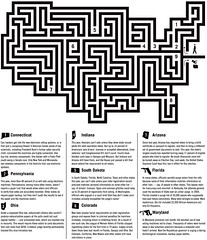But some of these obstacles are making it nearly impossible to vote (even for those who are legally eligible). The most despicable part? It's engineered by partisans who are looking to win elections that hang on razor-thin margins.
Take a look at some of the more insidious obstacles in various states.
Remember to Vote, Hope It Counts
On Nov. 7, many voters will encounter new voting machines, new computerized voter lists and new rules regarding registration and ID requirements. As primaries earlier this year demonstrated, local officials and poll workers are overwhelmed by all the changes — some of them engineered by mischievous partisans who have passed laws and rules that would block many eligible citizens from voting.
There is a silent disenfranchisement afoot — one that could affect hundreds of thousands of voters. That’s bad for democracy. In the 2004 presidential election, some states were decided by less than 1 percent of the vote. This year, dozens of Congressional races could be close enough that vote suppression would affect them.
What follow are examples of ways the vote could be suppressed next week around the country. Problems listed in one state may also apply to several others. Taken together, they show just how urgent it is that the country move toward a system of universal voter registration, in which the government takes responsibility to ensure that all citizens are on the rolls, with real protections.
Looking forward, Congress and state legislatures should spurn partisan attempts to manipulate elections by imposing new voting requirements, like proof of citizenship and identification. They should ban wireless components in voting machines and require an audited paper trail. Judges should continue to strike down illegal and anti-democratic laws. And citizens and journalists should demand to know who is being purged from the rolls, and why. All registered voters should cast their ballots and insist their votes be counted.


Aucun commentaire:
Enregistrer un commentaire